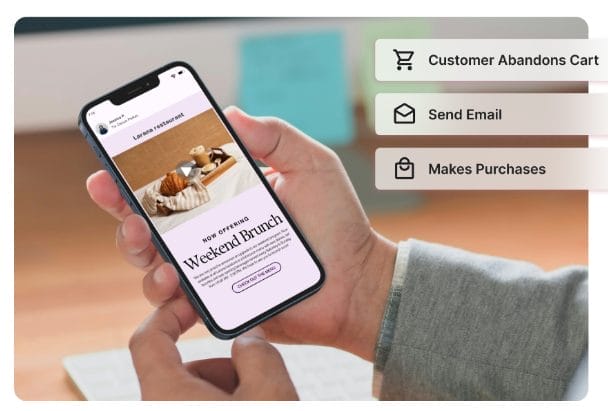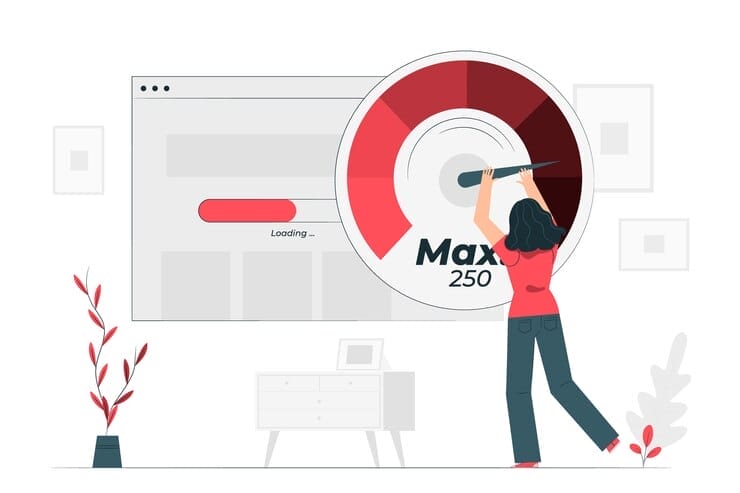Discover how poor branding can tank a product’s success! Explore 10 shocking negative brand image examples and valuable lessons from poorly branded products to avoid common mistakes that can hurt your brand’s image and reputation.
You May Also Like: 13 Brand Positioning Examples From Powerful Brands
Although a poor brand image is more than just an image problem, it remains one of the most difficult to solve for most brands.
A company’s reputation can be as important as its products and services. I believe that companies that ignore their brand image will find themselves sinking in the ocean of competition from others.
Here are some examples of how poorly branded products have negatively impacted a company’s sales.
Key Takeaways
- The article highlights several poorly branded products and explains why they failed to connect with consumers.
- Changing a beloved product formula can alienate loyal customers (New Coke).
- Weak or diluted brand identity leads to loss of consumer interest (Jell-O).
- Product flavor must align with branding expectations (Pepsi Blue).
- Artificial additives can deter health-conscious consumers (EZ Squirt Ketchup).
- Gendered marketing without real value invites backlash (Bic for Her).
- Failing to understand user needs leads to platform failure (Google+).
- Poor pricing strategies can doom even innovative products (Amazon Fire Phone).
- Unappealing flavor combinations reduce repeat purchases (Coca-Cola Blak).
- Overhyped claims damage credibility when not backed by quality (Trump Steaks).
- Strong negative brand associations can kill product extensions (Colgate Kitchen Entrees).
You Can Also Listen on ADILO, Spotify, Amazon Music & Castbox.
Avoid These 10 Negative Brand Image Examples
Learn from these bad branding examples to build a brand that’ll stand the test of time.
#1. New Coke, Coca-Cola Co, 1985

Our first poor branding example is Coca-Cola.
They had a well-established brand identity, but in 1985, they changed the formula of their flagship beverage, Coke. To make it healthier, they replaced the high fructose corn syrup with sucrose (table sugar), added artificial sweeteners, and removed caffeine.
An extensive nationwide taste test cost the firm $4 million.
Additionally, even though the New Coke performed well in taste testing, the public’s response to it was overwhelmingly unfavorable following its launch. The result was that many consumers did not buy the product anymore.
After introducing the New Coke, the business was forced to prelaunch the old recipe and rename it Coca-Cola Classic within three months.
This resulted in a loss of trust and reputation among customers and caused them to go back to other brands like Pepsi.
Brand reputation is crucial, especially when dealing with visual identity. Ensuring your product visuals maintain the highest quality image format can make a significant difference in how customers perceive and engage with your brand.
For brands, building a strong online presence is just as important as getting the visuals right. As more people turn to digital platforms for their first impressions, it’s vital that your brand shows up clearly and reliably when they search for answers.
Handpicked For You:
- The Snapchat Marketing Guide for Brand Growth
- Pinterest Marketing: The beginners’ guide
- Branding: The Importance of Branding & Features of a Branding Strategy
#2. Jell-O
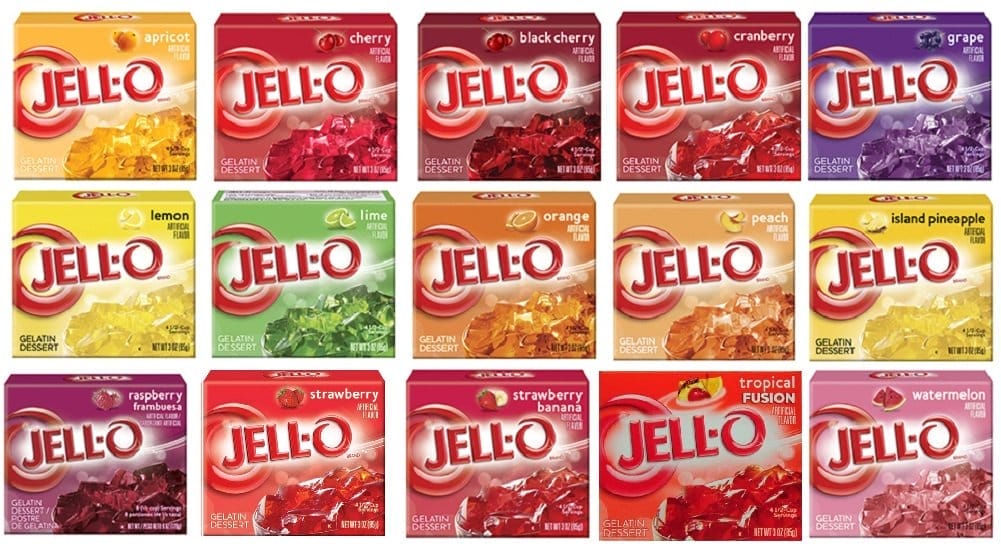
Next on our list of negative brand example is Jell-O.
Jell-O has been around since 1884 and is known for its gelatin dessert. However, several changes over the years, including modifications in flavor and nutritional value, made the Jell-O name synonymous with being bland and tasteless.
This led to a decline in sales for the brand.
#3. Pepsi Blue, 2002

Pepsi Blue is one of the examples of poor brand.
In 2002, the company decided to introduce a beverage with a brilliant blue color theme. Though it was advertised as having a berry flavor, Pepsi blue didn’t taste like a berry.
Credit: Nostalgia Treehouse | Hosted on Adilo – A Cloud Video Hosting & Collaboration Platform
Consumers who tried it said it tasted more sweet and syrupy than conventional cola, tasting much like cotton candy with a berry aftertaste. It was colored with Blue 1, a controversial coloring chemical that was outlawed in several nations at the time.
Despite extensive advertising by PepsiCo, featuring pop singer Britney Spears, the bands Sev and Papa Roach, and Hollywood films like The Italian Job and Garfield: The Movie, it is primarily seen as a commercial failure due to its low sales.
It was withdrawn in Canada and the US in 2004; however, it is still sold in the Philippines.
#4. EZ Squirt Ketchup, Heinz, 2006
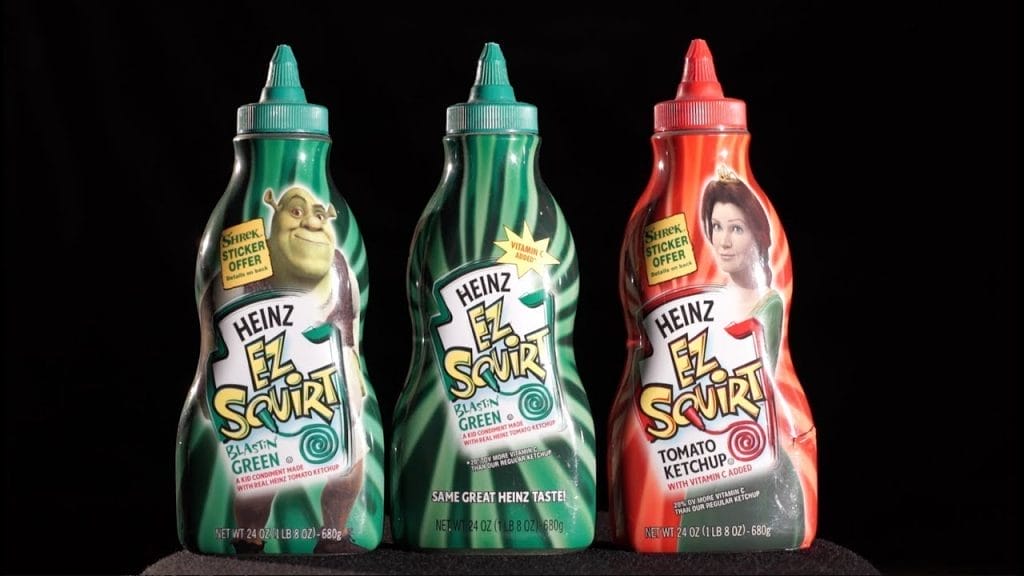
To attract kids’ interest, Heinz made the decision in 2000 to give its ketchup an interesting twist. They created Ez Squirt-colored ketchup, which was available in three primary bright colors: purple, teal, and green.
The concept was never intended to remain viable. It was canceled after six years.
Massive sales were made when the product was first introduced, but as customers got more health concerned, the use of artificial food dyes—which the Ez Squirt colored ketchup contained—began to be restricted or prohibited in many countries.
#5. Bic for Her, 2012
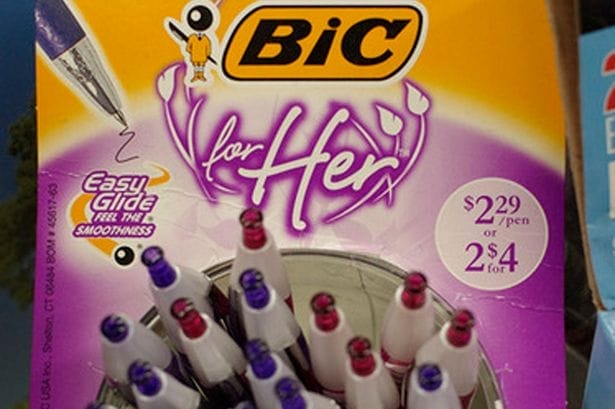
“Lady pens,” a product that ladies didn’t even realize they wanted, were introduced by Bic in 2012. These illogically gendered pens were ridiculed and failed to attract customers.
The product received harsh criticism for being misogynistic. Its stupid catchphrases “Look Like a Girl” and “Think Like a Man” drew a lot of internet backlash for the brand.
Businesses should use Bic’s public relations blunder as a learning experience to remember to do their homework before introducing potentially controversial products.
#6. Google+, 2011

Even the almighty Google is not immune to making poor branding mistakes.
Google developed a social media platform in 2011 called Google+ to compete with rival social networks. The forum was also designed to connect YouTube, Google Drive, Blogger, and other Google services.
Google+ was viewed as a failure, but not because it couldn’t be used to sell and advertise.
Their inability to understand the needs and expectations of their customers contributed to a decrease in interest in their services. So After eight years, Google+ ended, citing shallow usage and lack of customer engagement.
#7. Amazon’s Fire Phone, 2014

Amazon Fire failure is one of my favorite poor branding examples.
The year 2014 saw Amazon launch the Fire Phone, their entry into the smartphone industry. But after a year, it was abandoned due to its extreme failure.
Tom Szkutak, the firm’s CEO, said that the price strategy was to blame for this product’s failure.
#8. Blak, Coca-Cola, 2006
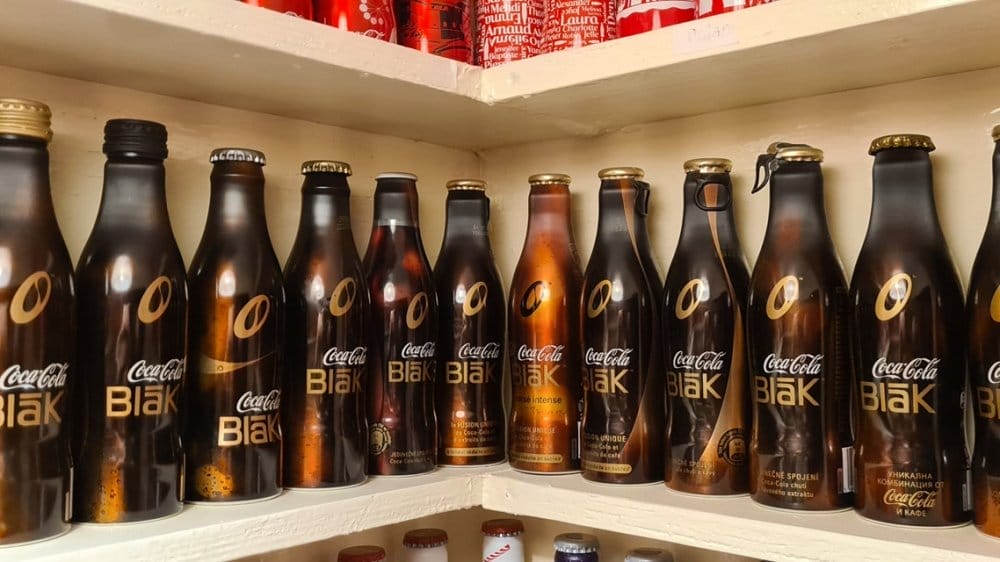
Coca-Cola Blak was created in 2006 by fusing coffee and Cola.
A unique flavor intended for both coffee and cola lovers, yet, when it was launched to the general public, consumers began to criticize the beverage for its bad flavor and high caffeine content, and it was discontinued.
#9. Trump Steaks, Donald Trump, 2007
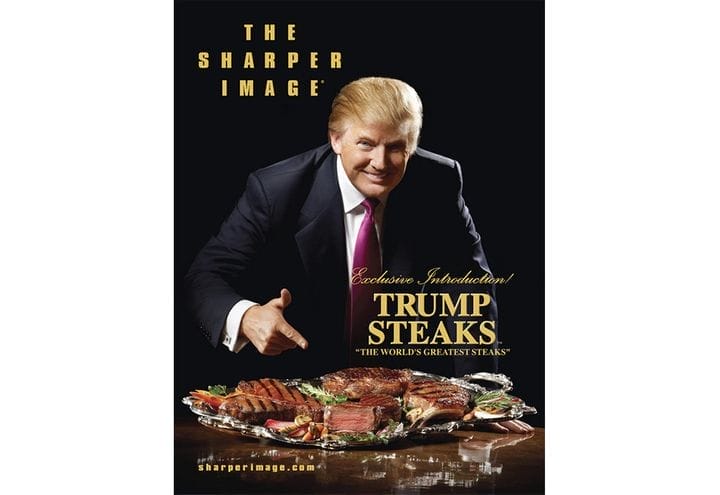
Donald Trump, a billionaire, introduced his “world’s finest” line of pricey steaks in 2007. T
he promise of eating one of the best steaks was used to tempt potential consumers. However, the term “best” was not well received.
The product was discontinued after two months because of weak sales and a failure to live up to customers’ expectations.
#10. Kitchen Entrees, Colgate
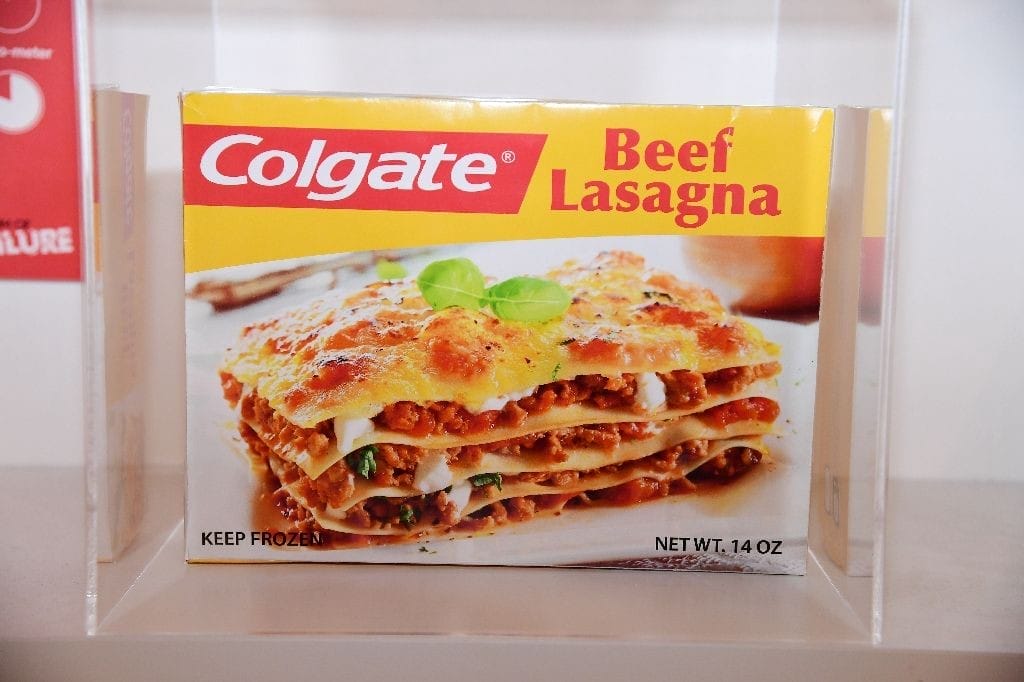
One of the leading brands, Colgate dominates the oral hygiene market with items including toothpaste, toothbrushes, and mouthwash.
The company entered the frozen meal market to diversify its product line in 1982. This strategy failed, most likely due to consumers’ inability to resist the impression that the Colgate food tasted identical to their toothpaste.
No business releases a product to hurt sales of its other goods, but Colgate should have anticipated this outcome.
After introducing the food entrees line, their toothpaste sales drastically decreased.
Lessons From These Poorly Branded Products
Here are some key things you can learn from examples of these poorly branded products:
Misleading Advertising
In recent years, we have witnessed many brands misinform consumers about their products. This could be through misleading labeling, false claims, or even outright lying. In some cases, these lies are intentional (for example, a company may claim that its product contains 10% chemical). In contrast, others are unintentional (such as a company claiming that its product contains chemicals but does not). When this happens, they can mislead consumers into thinking that what they are buying is something different than what was advertised. They may think that their product has a completely different effect than what they were expecting.
False Promises
Another way that companies can misrepresent their products is by promising too much. Consumers don’t want to hear that they cannot expect certain results from their products simply because they do not know how to use them correctly. Instead, they would rather receive advice on how to use their products properly and get better results. But if a company makes a promise that it can’t keep, then it leaves consumers feeling disappointed and misled.
Poor Quality
The first thing that comes to mind when people think about brands is high-end products from luxury companies like Louis Vuitton and Gucci. However, these have been known to produce items that do not live up to their reputation. Many people have reported receiving defective bags or shoes that were never delivered. When this happens, the brand is tarnished and consumers lose trust.
Negative Reviews
When customers share their experiences online, it’s easy to see how much impact some negative reviews can make. Many companies spend money and resources trying to improve customer service, but when things go wrong, it doesn’t matter how great your customer service team is, it’s going to hurt your business.
How to Avoid Poor Brand Image

A poor brand image can lead to lost sales and profitability.
Sure, you might be saying that in your head, but you don’t want to say it out loud, let alone know how to fix the issue. So, what are some things you can do?
We’re here to help.
Establish a Good Reputation
Reputation is what people think about your company. Your reputation is how well known your company is among potential customers. Companies with a good reputation are usually seen as trustworthy and dependable. They are typically viewed positively by their peers and competitors. Companies with a bad reputation are often looked at negatively and sometimes even shunned altogether.
Maintain a Good Customer Retention
Customer retention refers to keeping current customers happy while attracting new ones. Good customer retention helps companies increase profits over time.
Brands like AI Work deliver purpose-built AI work models such as Yumi AI, an automated customer service concierge that streamlines workflows, enhances communication, and helps brands act on customer insights more effectively.
This focus on customer satisfaction enables your company to retain existing customers while continuing to attract new ones.
Consistent Messaging
Consistency is key to brand recognition. To build trust with your customers, you need to be consistent in your messaging. This means having a single message across all of your marketing content. When customers see your company’s name everywhere, they start to believe that this is a legitimate company.
Produce Quality Product
Quality is the standard of excellence of a product or service. Consumers want products they can trust. They don’t wish for substandard products. If your company produces high-quality products, you will have loyal customers who will buy them repeatedly. To keep customers coming back, you need to improve your products constantly.
Packaging
Packaging plays a significant role in branding. You want to make sure that your packaging is attractive and professional looking. Using eco-friendly packaging can further highlight your brand’s commitment to sustainability.Your brand identity and values should be reflected in your packaging. Make sure that your packaging is appealing, eye-catching, and memorable.
Price
Price is something that everyone considers when buying something. Customers are always looking for the best value for their money. Price becomes a significant factor when consumer shops around for a specific item. Some businesses focus too much on increasing prices instead of on the quality of their services and products. In this case, a company’s profit margin may decrease if its pricing strategy does not correspond to its quality standards.
How Adilo Can Improve Your Image Branding
Adilo can help you improve your brand image and boost sales.
Adilo Video Hosting Review

Adilo is the best ad-free video hosting platform currently in the market. It combines the key features of marketing-leading alternatives, like Wistia, YouTube, and Vimeo, in one dashboard, making it the top choice for businesses, creators, educators, and marketers.
Price: 0.00
Price Currency: USD
Application Category: Ad-Free Video Hosting
5
It is an online video and audio hosting site, offering ad-free video and podcast sharing and streaming. With Adilo’s powerful features, you can create engaging and professional video content that will help you improve your brand image and boost sales.
CLICK HERE TO GET FREE ADILO ACCOUNT
Some of the features include:
- Unlimited Hosting: With Adilo, you can host as many videos as your brand wants without difficulty.
- Video Recording: With a built-in screen and face camera you can be rest assured that you are getting crisp and sharp visuals Your video content is created within seconds and will look amazing.
- Video Split Testing: The Adilo split testing tool helps you experiment with your videos to see which one resonates well with your audience
- Video Channels: This feature helps you organize all your videos in one place for easy accessibility both for you and your customers.
- Podcast Hosting: Without proper planning and layout, all things will be a mess. Adilo podcast hosting feature helps to organize your video and audio content in one place.
Handpicked For You:
- The Snapchat Marketing Guide for Brand Growth
- Pinterest Marketing: The beginners’ guide
- Branding: The Importance of Branding & Features of a Branding Strategy
- Best Guide to Brand Positioning in 2022
- The Concept of a Brand: Elements, Types, 10 Global Brands in 2022 & What Makes Them Successful
FAQs
What Is a Poor Brand Image?
A poor brand image occurs when consumers perceive a brand negatively due to inconsistent messaging, bad product decisions, misleading marketing, or a disconnect between brand promise and delivery.
What Causes a Brand to Fail Despite Being Popular?
Brands often fail when they ignore customer loyalty, misread market trends, overpromise, or launch products that don’t align with their core identity.
Can a Strong Brand Recover From a Poor Product Launch?
Yes, but recovery requires acknowledging mistakes, listening to customers, and realigning the brand with its core values and audience expectations.
Why Do Brand Extensions Sometimes Damage Brand Image?
Brand extensions fail when the new product feels unnatural or contradicts existing brand associations, such as Colgate launching food products.
How Can Companies Avoid Poor Branding Mistakes?
Brands should conduct audience research, test messaging, stay consistent with brand identity, and prioritize long-term trust over short-term trends.
Final Thought on Poor Branding Examples
I don’t want to sound like a broken record, but good marketing is vital to every business.
No matter what type of business you’re in, just like in life, if you don’t have an excellent public image, people won’t know who you are or what your products or services offer them. This can lead to lost sales and profitability for any company.
READ ALSO: 4 Brand Positioning Examples from Powerful Brands
You love this Article. Get more Updates via Adilo’s Twitter Page.

